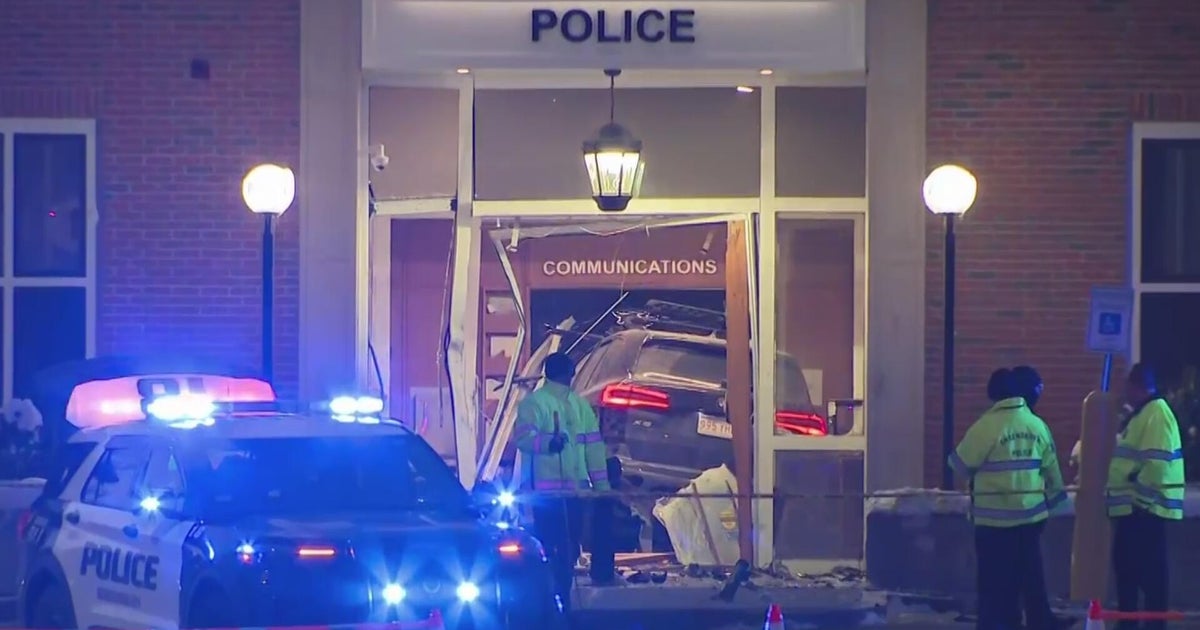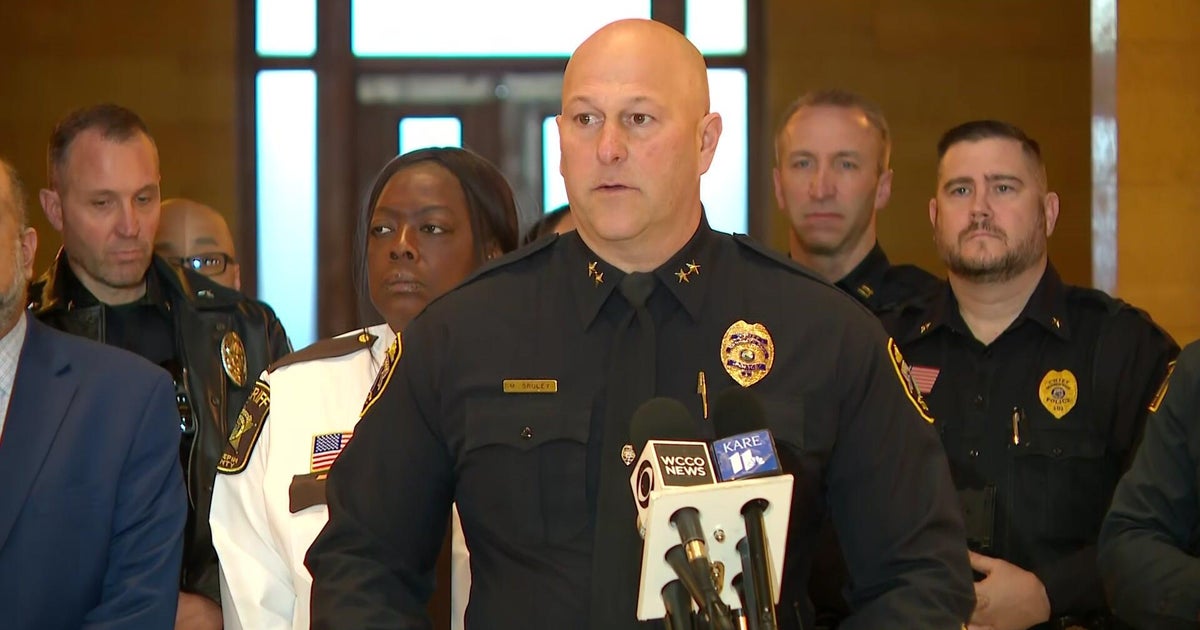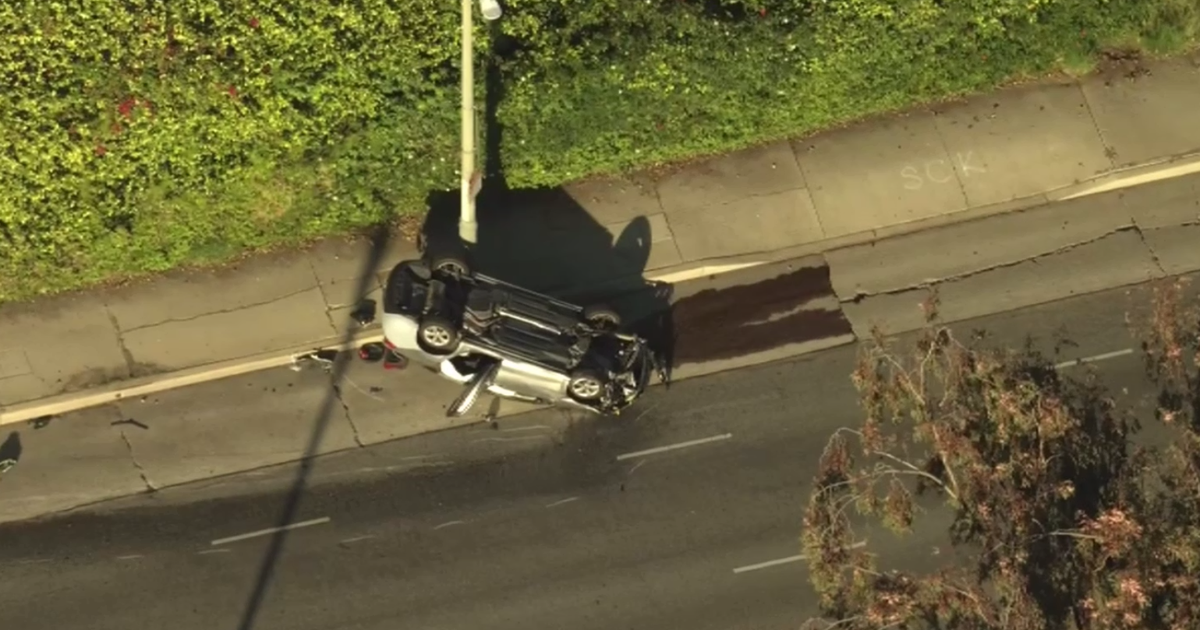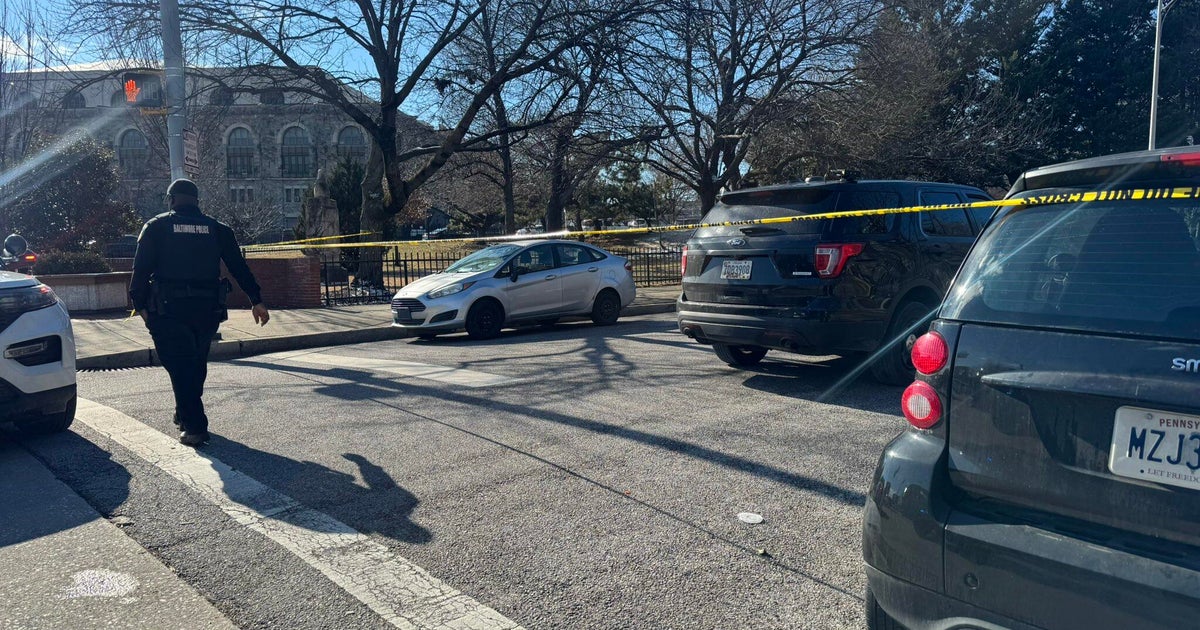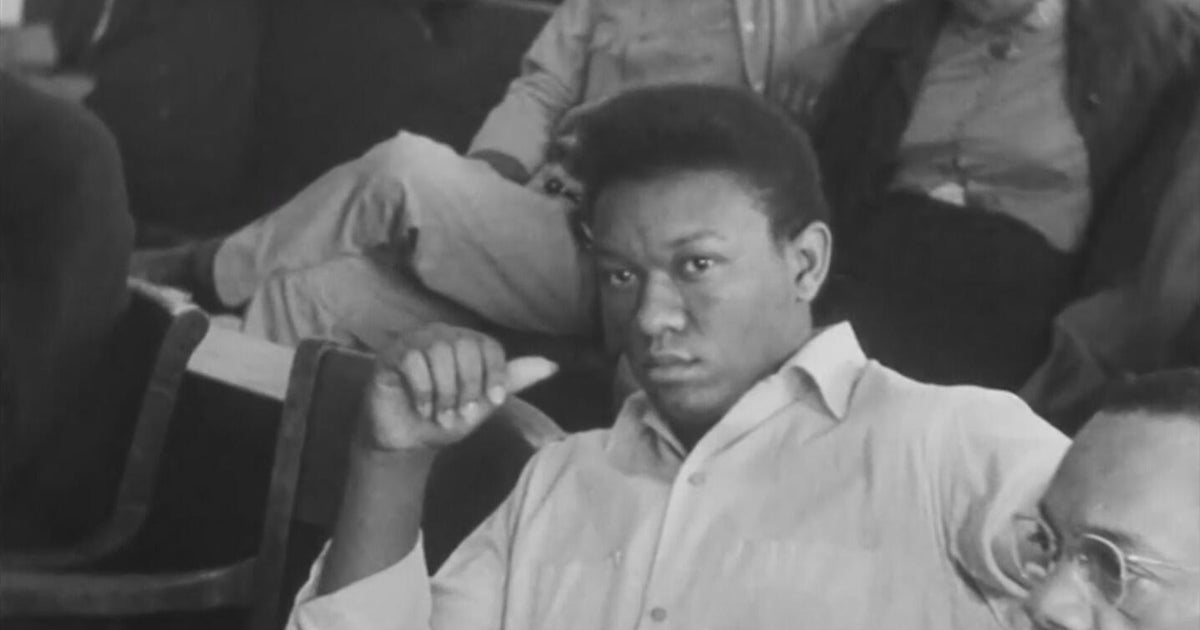Bloomberg, Kelly Blast Judge's Stop-And-Frisk Ruling That Says Practice Violates Rights
NEW YORK (CBSNewYork/AP) -- Mayor Michael Bloomberg and Police Commissioner Ray Kelly sounded off on a judge's ruling Monday that said the NYPD deliberately violated the civil rights of tens of thousands of New Yorkers with its stop-and-frisk policy.
Bloomberg vowed to appeal U.S. District Court Judge Shira Scheindlin's decision, saying the judge displayed a "disturbing disregard'' for the "good intentions'' of police officers.
"It was pretty clear from the start which way it would turn out," Bloomberg said at a news conference. "Throughout the case, we didn't believe we were getting a fair trial and this decision confirms this suspicion and we will be presenting evidence to the appeals court."
Bloomberg and other officials have credited the policy in part for a pronounced drop in the homicide rate. The city averages one homicide a day currently, compared with six in 1990.
"This is a very dangerous decision made by a judge that I think just does not understand how policing works," Bloomberg added. "We believe we have done exactly what the courts allow and we will continue to do everything we can to keep this city safe. Crime can come back any time. The criminals think that they're going to get away with things."
Bloomberg, Kelly Blast Judge's Stop-And-Frisk Ruling That Says Practice Violates Rights
WATCH: Click Here To Watch The Full News Conference
Kelly was equally miffed.
"What I find most disturbing and offensive about this decision is the notion that the NYPD engages in racial profiling. That is simply recklessly untrue. We do not engage in racial profiling. It is prohibited by law. It is prohibited by our own regulations," Kelly said.
Bloomberg, Kelly Defend Stop-And-Frisk
"We train our officers that they need reasonable suspicion to make a stop and I can assure you that race is never a reason to conduct a stop. The NYPD is the most racially and ethnically diverse police department in the world," Kelly added.
In a lengthy opinion, Scheindlin wrote the city is liable for violating plaintiffs' Fourth Amendment rights, which protects against unreasonable search and seizure. She also found violations with the Fourteenth Amendment.
EXTRAS: Read The Full Remedies Opinion | Read The Full Liability Opinion
As CBS 2's Jessica Schneider reported, Judge Scheindlin ruled that the stop-and-frisk policy amounts to "indirect racial profiling," in which "minorities are indeed treated differently than whites," and, "officers are conducting stops in a racially discriminatory manner."
"Far too many people in New York City have been deprived of this basic freedom far too often,'' she said. "The NYPD's practice of making stops that lack individualized reasonable suspicion has been so pervasive and persistent as to become not only a part of the NYPD's standard operating procedure, but a fact of daily life in some New York City neighborhoods.''
Scheindlin also accused the police department's senior officials of violating law "through their deliberate indifference to unconstitutional stops, frisks and searches.''
Judge Rules NYPD's Stop-And-Frisk Practice Violates Rights
"They have received both actual and constructive notice since at least 1999 of widespread Fourth Amendment violations occurring as a result of the NYPD's stop-and-frisk practices," she wrote. "Despite this notice, they deliberately maintained and even escalated policies and practices that predictably resulted in even more widespread Fourth Amendment violations.''
She said through paperwork alone, she determined at least 200,000 stops were made without reasonable suspicion, the necessary legal benchmark, lower than the standard of probable cause needed to justify an arrest.
Judge Rules NYPD's Stop-And-Frisk Practice Violates Rights
"The city's highest officials have turned a blind eye to the evidence that officers are conducting stops in a racially discriminatory manner,'' she wrote. "In their zeal to defend a policy that they believe to be effective, they have willfully ignored overwhelming proof that the policy of targeting 'the right people' is racially discriminatory.''
Judge Appoints Independent Monitor
Scheindlin did not order an end to the practice. Instead, she has appointed an independent monitor to oversee changes to the policy.
"The purpose of the remedies addressed in this opinion is to ensure that the practice is carried out in a manner that protects the rights and liberties of all New Yorkers, while still providing much-needed police protection," Scheindlin wrote.
Scheindlin said in the ruling that Peter L. Zimroth, a onetime city lawyer and a former chief assistant district attorney, has been appointed as the monitor. In both roles, Zimroth worked closely with the NYPD, the judge said.
She did not give many specifics, but said the independent monitor would develop reforms to policies, training, supervision, monitoring and discipline.
She also ordered that officers test out body-worn cameras in the police precinct where most stops occurred.
"The police officer must reasonably suspect that the person stopped is armed and dangerous," she said. "The frisk must be strictly limited to whatever is necessary to uncover weapons that could harm the officer or others nearby."
To which Bloomberg responded, "It would be a nightmare. Cameras don't exactly work that way, a camera on the lapel or the hat. The police officer turns the right way or didn't turn the right way, my God, he deliberately did it. My God. It's a solution that is not a solution to the problem."
City lawyers argued the department does a good job policing itself with an internal affairs bureau, a civilian complaint board and quality assurance divisions.
Scheindlin rejected their arguments.
"The city and its highest officials believe that blacks and Hispanics should be stopped at the same rate as their proportion of the local criminal suspect population,'' she wrote. "But this reasoning is flawed because the stopped population is overwhelmingly innocent -- not criminal.''
The Case
Four men sued the department in 2004, saying they were unfairly targeted because of their race. There have been about 5 million stops during the past decade, mostly black and Hispanic men.
Scheindlin issued her ruling after a 10-week bench trial for the class-action lawsuit that included testimony from top NYPD brass and a dozen people, 11 men and one woman, who said they were wrongly stopped because of their race.
Stop-and-frisk is a constitutional police tactic, but Scheindlin concluded that the plaintiffs had "readily established that the NYPD implements its policies regarding stop-and-frisk in a manner that intentionally discriminates based on race.''
Stop-And-Frisk Plaintiff's Respond To Ruling
"When I got the call this morning, the first thing I did was cry," David Ourlicht, one of the men who sued the city, said.
"It was happiness, it was sadness, it was relief," the 25-year-old said at a press conference Monday afternoon.
Stop-And-Frisk Plaintiff's Respond To Ruling
Ourlicht said he's been stopped dozens of times and hopes the ruling prevents that from happening to his niece and nephews. Five years ago Ourlicht was a student at St. John's University when he was stopped by a cop, put against a wall and frisked, CBS 2's Tony Aiello reported.
An NYPD officer testified he thought a notebook in Ourlicht's pocket might have been a gun.
"It shows the polarization of people of color in this country, as to how we are viewed," Ourlicht said.
"To have experiences like this, that just breaks my heart," he added.
Ourlicht's attorney contends police have been illegally profiling.
"Today is a vindication of those claims," Darius Charney said.
The Center for Constitutional Rights, the nonprofit group that represented the plaintiffs, said in a statement: "Today is a victory for all New Yorkers. After more than 5 million stops conducted under the current administration, hundreds of thousands of them illegal and discriminatory, the NYPD has finally been held accountable. It is time for the city to stop denying the problem and work with the community to fix it.''
Added the Center for Constitutional Rights' Sunita Patel: "All of these should be seen by police as an opportunity. An opportunity for them to work with the communities they police and an opportunity for them to build back confidence and public trust in what they do."
The case was the largest and most broad legal action against the policy.
Bloomberg has said the stop-and-frisk program has helped keep New Yorkers safe.
"It has taken some 8,000 guns off the streets over the past decade and some 80,000 other weapons," the mayor said Monday. "As guns continue to flow onto our streets from other states, we have to take every constitutionally protected step at our disposal to keep them out and to keep them from being used to kill innocent people."
New Yorkers React
Reaction to the ruling has been pouring in from lawmakers, activists and others.
Queens City Council member Peter Vallone Jr. has been a defender of the NYPD's stop-and-frisk tactic and is no fan of federally imposed oversight.
"The NYPD does not need an additional monitor, it already has 10. Cities like Chicago and Detroit, they need monitors, not the most diverse and best trained force in the country," Vallone told WCBS 880's Rich Lamb.
Lawmakers React As Judge Rules NYPD's Stop-And-Frisk Practice Violates Rights
But stop-and-frisk opponent Brooklyn council member Brad Lander said he welcomes a federal eye on the NYPD.
"I think the appointment of a monitor is a good step in reforming stop-and-frisk. Now I will say the judge writes that monitor will be specifically and narrowly focused on reforming the NYPD's use of stop-and-frisk, so I believe we still also need an NYPD inspector general for broader, more proactive oversights," Lander told Lamb.
Lander added the council will vote to override the mayor's veto of the IG bill August 22.
MORE: Click Here For Full Statements From Lawmakers & Others
New Yorkers React To Stop-And-Frisk Decision
Meanwhile, as CBS 2's Lou Young reported, residents of minority communities reacted swiftly and strongly to the decision on Monday. Many cheered the ruling, but some wondered what would happen if the much-criticized technique comes to an end.
"I'm glad that this judge ruled it unconstitutional," said Donald Agarrat of Harlem. "It's something I think we all already knew."
Like a lot of men in Harlem, Agarrat said he has been stopped and frisked on more than one occasion. He said he is a potential member of the "class" in the class action lawsuit that sparked the ruling.
Such people are easy to find.
"My only fear is I'll be stopped for the wrong thing and won't be able to prove it," said Harrison Young of Jamaica, Queens.
It may be a matter of perception, but a check on the street in any community of color in New York City will reveal a near-unanimity of attitude, an intensity of personal experience and an opinion that the "stop and frisk" techniques are not all that different from police techniques of an uglier past, Young reported.
"When you grow up, you learn that the world will view you as a criminal -- guilty until you prove your innocence," said Noche Diaz of Harlem.
"It has a psychological effect if you feel when you walk down the street, what's going to happen -- do I have to carry ID at all times?" said Gordon Easley of Harlem.
But some agreed with the city that a reduction in crime is what ultimately matters.
"It's how you carry yourself; your character," said Gerald Money of Harlem. "If you have your pants all the way down –10, 15 guys -- quite naturally I want to stop them too because you're probably up to no good."
"We need stop and frisk to get guns off the street," said Janail Van Doten of the Bronx. "It can save a life." Van Doten lost a son to gun violence.
The matter will ultimately be decided with a ruling on the Bloomberg administration's appeal.
Check Out These Other Stories From CBSNewYork.com:
(TM and © Copyright 2013 CBS Radio Inc. and its relevant subsidiaries. CBS RADIO and EYE Logo TM and Copyright 2013 CBS Broadcasting Inc. Used under license. All Rights Reserved. This material may not be published, broadcast, rewritten, or redistributed. The Associated Press contributed to this report.)
